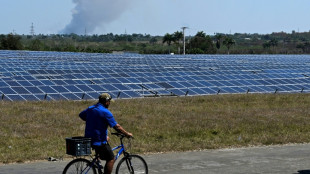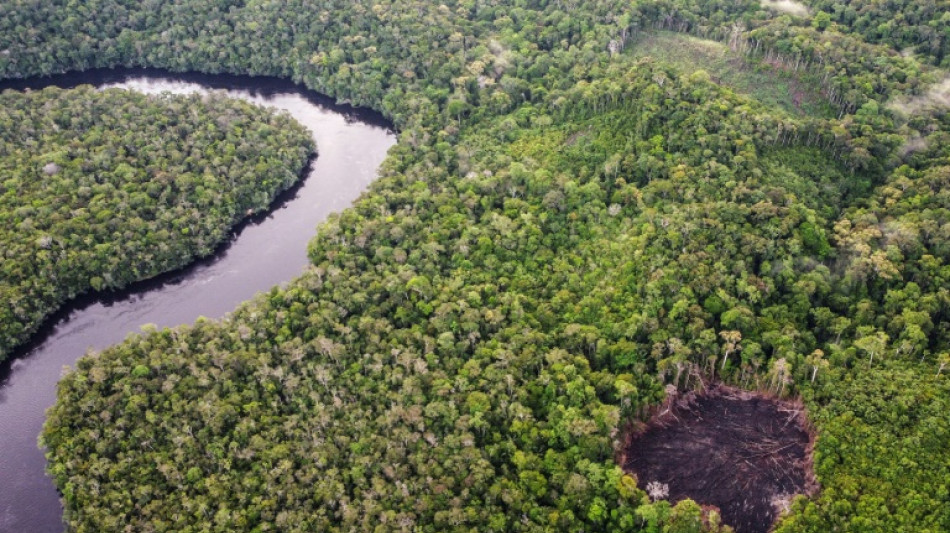
-
 England, Germany and Spain on mark in women's Nations League
England, Germany and Spain on mark in women's Nations League
-
Bayern's Musiala to miss Inter first leg with injury

-
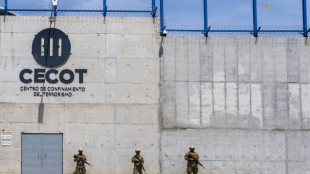 Judge orders return to US of Salvadoran man deported in error
Judge orders return to US of Salvadoran man deported in error
-
'Class' Freeman eases Northampton past Clermont and into Champions Cup quarters

-
 Amadou of Malian blind music duo dies aged 70
Amadou of Malian blind music duo dies aged 70
-
Freeman hat-trick eases Northampton into Champions Cup quarters with Clermont win

-
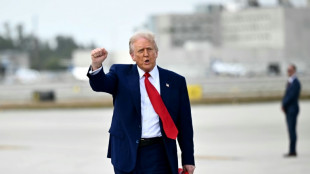 Defiant Trump dismisses stock market's tariff plunge
Defiant Trump dismisses stock market's tariff plunge
-
Musiala injury sours Bayern win at Augsburg

-
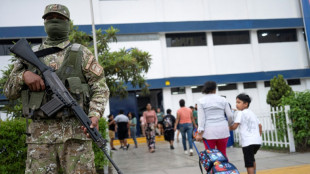 Peruvian schoolkids living in fear of extortion gangs
Peruvian schoolkids living in fear of extortion gangs
-
Top seed Pegula rallies to oust defending champ Collins in Charleston

-
 Amadou of Malian blind music duo Amadou & Mariam dies aged 70
Amadou of Malian blind music duo Amadou & Mariam dies aged 70
-
California to defy Trump's tariffs to allay global trade fears

-
 Bayern's Musiala subbed off with injury days out from Inter clash
Bayern's Musiala subbed off with injury days out from Inter clash
-
Russian strike kills 16 in Ukraine leader's home city, children among dead
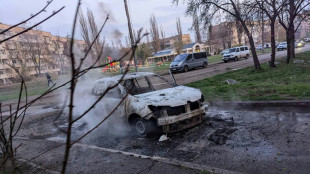
-
 NBA fines Grizzlies' Morant for imaginary gun gesture
NBA fines Grizzlies' Morant for imaginary gun gesture
-
Trump tariffs offer opportunity for China
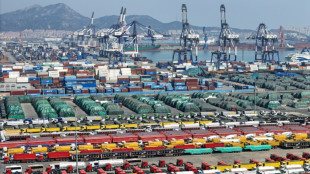
-
 UK comedian Russell Brand charged with rape
UK comedian Russell Brand charged with rape
-
Marsh, Markram help Lucknow edge Mumbai in IPL

-
 Trump gives TikTok extra 75 days to find buyer
Trump gives TikTok extra 75 days to find buyer
-
Israel attorney general accuses PM of 'conflict of interest' in security chief dismissal
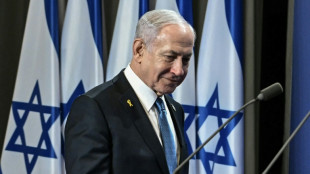
-
 Emery glad to see Rashford make landmark appearance
Emery glad to see Rashford make landmark appearance
-
Sean 'Diddy' Combs faces more charges ahead of criminal trial

-
 Russian missile strike kills 14 in Ukraine leader's home city
Russian missile strike kills 14 in Ukraine leader's home city
-
Trump's tariff Big Bang puts global economy under threat
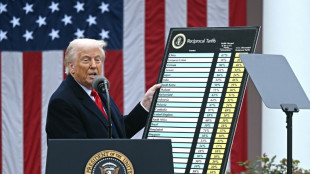
-
 I Am Maximus backed for National as Mullins hot streak continues
I Am Maximus backed for National as Mullins hot streak continues
-
2014 World Cup winner Hummels to retire at season's end

-
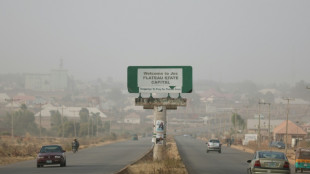 Intercommunal violence kills dozens in central Nigeria
Intercommunal violence kills dozens in central Nigeria
-
Nigerian, S. African music saw 'extraordinary growth' in 2024: Spotify

-
 Russell Brand: From Hollywood star to rape suspect
Russell Brand: From Hollywood star to rape suspect
-
France soccer star Mbappe unveiled in London... in waxwork form

-
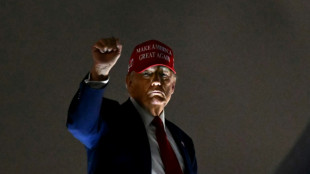 Trump goads China as global trade war escalates
Trump goads China as global trade war escalates
-
Israel expands Gaza ground offensive, hits Hamas in Lebanon
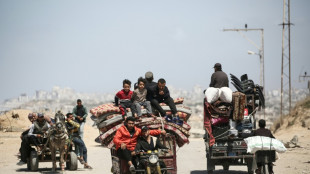
-
 TikTok faces new US deadline to ditch Chinese owner
TikTok faces new US deadline to ditch Chinese owner
-
US Fed Chair warns tariffs will likely raise inflation, cool growth
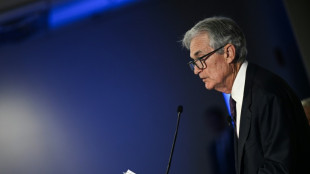
-
 Mbappe among three Real Madrid players fined for 'indecent conduct'
Mbappe among three Real Madrid players fined for 'indecent conduct'
-
How can the EU respond to Trump tariffs?
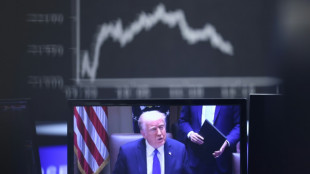
-
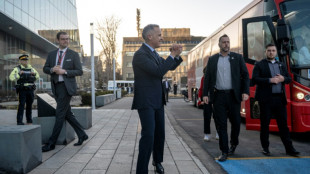 Canada loses jobs for first time in 3 years as US tariffs bite
Canada loses jobs for first time in 3 years as US tariffs bite
-
Real Madrid and Barcelona respect each other, says Ancelotti

-
 Nations divided ahead of decisive week for shipping emissions
Nations divided ahead of decisive week for shipping emissions
-
Trump goads China after Beijing retaliates in global trade war
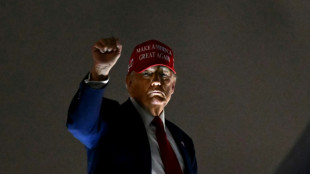
-
 Arteta urges Arsenal to enjoy "beautiful" run-in despite injury woes
Arteta urges Arsenal to enjoy "beautiful" run-in despite injury woes
-
London mayor gets new powers to revive capital's ailing nightlife

-
 Italy's ski star Brignone takes on 'new challenge' after serious leg injury
Italy's ski star Brignone takes on 'new challenge' after serious leg injury
-
Amorim in a 'rush' to succeed at Man Utd

-
 PSG coach Luis Enrique targets unbeaten season
PSG coach Luis Enrique targets unbeaten season
-
Duterte victims seeking 'truth and justice': lawyer

-
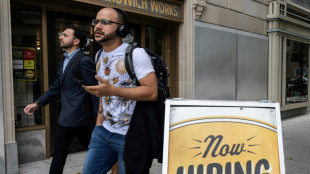 US job growth strong in March but Trump tariff impact still to come
US job growth strong in March but Trump tariff impact still to come
-
UK comedian and actor Russell Brand charged with rape

-
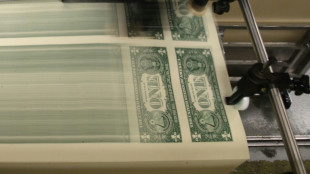 Stocks, oil slump as China retaliates and Trump digs in heels
Stocks, oil slump as China retaliates and Trump digs in heels
-
Postecoglou 'falling out of love' with football due to VAR

| RBGPF | 1.48% | 69.02 | $ | |
| RYCEF | -18.79% | 8.25 | $ | |
| CMSC | 0.13% | 22.29 | $ | |
| SCS | -0.56% | 10.68 | $ | |
| BCC | 0.85% | 95.44 | $ | |
| NGG | -5.25% | 65.93 | $ | |
| GSK | -6.79% | 36.53 | $ | |
| AZN | -7.98% | 68.46 | $ | |
| RIO | -6.88% | 54.67 | $ | |
| BTI | -5.17% | 39.86 | $ | |
| RELX | -6.81% | 48.16 | $ | |
| JRI | -7.19% | 11.96 | $ | |
| VOD | -10.24% | 8.5 | $ | |
| BCE | 0.22% | 22.71 | $ | |
| CMSD | 0.7% | 22.83 | $ | |
| BP | -10.43% | 28.38 | $ |

UN carbon market inches closer after COP29 agreement
The creation of a UN-backed global carbon market has taken a step closer to reality with governments approving new standards for the use of credits to meet climate targets.
The agreement reached at the COP29 climate summit was hailed as a breakthrough after nearly a decade of complex negotiations over the rules for trading carbon credits.
UN climate chief Simon Stiell said carbon markets would be a "game-changing tool" for poorer countries, but opponents say the use of credits does not change the behaviour of big polluters.
- Carbon trading -
In carbon markets, one credit equals a tonne of planet-heating carbon dioxide emissions removed from the atmosphere or prevented from entering it.
A country, or company, wanting to reduce its carbon footprint can buy credits from projects that are cutting emissions elsewhere, like tree planting or replacing coal with renewable energy.
Carbon trading is supposed to allow nations that have cut greenhouse gases above what they promised to sell credits to slower acting polluters.
Article Six of the Paris agreement lays out two options for trade: the first between countries, and the second on a UN-administered marketplace open to government and private buyers.
Since the accord was signed in 2015, diplomats have been haggling over the rules and standards necessary to facilitate this trade and ensure transparency and credibility in the market.
- Article 6 -
These talks are far from over. But some countries have already started to trade in carbon.
Earlier this year, Switzerland bought credits from Thailand linked to emissions reduced by converting buses in Bangkok to electric power.
And on the marketplace option, nearly 200 nations agreed at COP29 on the basic principles to assure standards in carbon credit projects, a key requirement for setting a market in motion.
- New standards -
The European Union and developing nations rejected the last round of proposals at the climate negotiations in 2023 for being too lax.
This time around a supervisory body, which has spent months canvassing NGOs and specialists, says the rules are much more rigorous, and give local people the right to challenge credit-generating activities on their territory.
The new proposals include guidelines for future certification to ensure that a project either avoids the release of CO2 by human actions, or acts to remove the planet-heating gas from the atmosphere and store it over an extended period of time.
For example, owning an existing forest that naturally stores CO2 would not be credited, but efforts to protect it from a genuine threat of deforestation could be.
The plans set monitoring standards -- to check that trees are actually planted, or that the risks of a forest being ravaged by fire are properly taken into account.
The UN proposal includes plans for a fund, modelled on mutual insurance, which would see a percentage of each project's credits set aside in the event it fails to store carbon as promised.
- Shaken by scandals -
Supporters of UN-operated carbon markets say these rules will raise standards across the board and improve the quality of credits being sold.
Credits have long been bought and traded in the voluntary carbon market, but no common set of rules governs these trades, and the sector has been shaken by high-profile scandals.
Some projects have been accused of selling credits that do nothing for the environment, while forest-based schemes have gone up in wildfire smoke.
Most buyers are in wealthy countries and projects in poorer ones, and the sector has been marred by allegations of abuses of local people.
Other concerns include how to ensure carbon pulled from the atmosphere remains stored long after a project has finished and the credit has been sold.
Y.Kobayashi--AMWN


